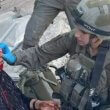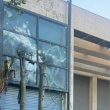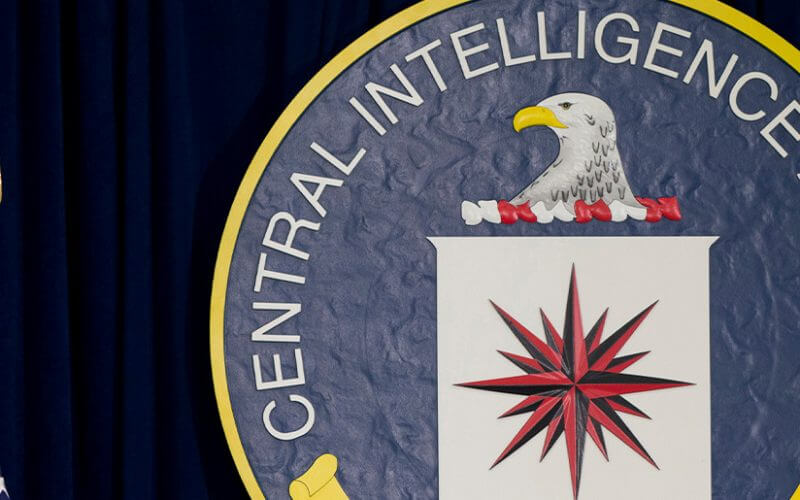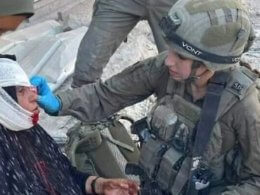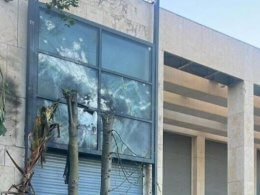Over the weekend, reports from United States intelligence sources revealed that the Central Intelligence Agency (CIA) is building a new regional hub in Lebanon within an embassy complex containing an area of 93,000 square meters in the country's capital, Beirut.
The new site is currently under construction in Awkar, a town in the Northern Province of Lebanon, far away from the Southern Province occupied by the Iranian-backed Islamic terrorist group Hezbollah.
According to the French Intelligence Online website, the complex will cost around $1 billion, containing a hospital, arts center, swimming pool, residential towers, and data collection center for US intelligence officials. Given Lebanon's closeness to Syria, US intelligence officials consider the country a safe and strategic location for sending intelligence agents and personnel from agencies in Washington, DC.
On Twitter, the official US Embassy of Beirut page posted photographs of the project’s construction and Lebanese Foreign Minister Abdallah Bou Habib and the US State Department Overseas Buildings Operations (OBO) Director touring the building site.
“The US intelligence community needs a center like this in the region, especially to monitor and address menaces from the Iran regime and its militias, but also from Jihadists. Its unique positioning on the Mediterranean coast, and its direct communication with US Navy makes a very secure hub for CIA, DIA and other agencies to operate from a strategically favorable location,” regional expert and author Dr. Walid Phares said to The Foreign Desk, adding that the location inside Lebanon will offer a “much better ratio of local support than in Afghanistan, Iraq, Sudan or Libya, where radical networks would be plotting against US interests.”
“The intel community is somewhat lucky to enjoy such a unique position in the Middle East, in view of its needs to keep an eye on a variety of foes embedded around the region from the Mediterranean sea to the borders of Pakistan,” Phares said.
“Also remember that the US will have an advanced base for extraction of friends in the region, as a bridge to US and NATO centers in Europe.”
Intelligence officials said the US is trying to strengthen its intelligence-sharing collaboration with the Lebanese Armed Forces (LAF) military intelligence unit, B2.
Officials say the new project will significantly contribute against Iran, Syria, and Hezbollah.
Intelligence sources also noted that the Lebanese Armed Forces received $60 million in December of last year with a guarantee of Defense Intelligence Agency (DISA) access from Washington.
Photographs of the new US embassy compound have sparked controversy on social media, with users questioning the purpose of the new American building in Beirut and others viewing the new complex as a military base under the guise of a new US embassy.
Others on social media noted that the new intelligence building and its location near Lebanon's capital Beirut are concerning, given Hezbollah's growing influence in the country dating back to the 1980s.
Before the 1980s, Lebanon was a peaceful country having a strong Western influence and the capital Beirut, known as the "Paris of the Middle East."
After the 1979 Islamic Revolution in Iran, led by Ayatollah Ruhollah Khomeini, the newly created Islamic Republic spread its influence throughout the Middle East, finding success in Lebanon through its Shiite-Islamic terrorist proxy Hezbollah, which committed terrorist attack after terrorist attack against American and Israeli forces in Beirut.
In 1983, the US Embassy in Beirut was bombed by a Hezbollah suicide bomber, killing 63, including 52 Lebanese and American Embassy employees. In the same year, several truck bombs operated by Hezbollah agents struck buildings in Beirut, housing American and French forces in Lebanon, shocking the international community.
Since the 1980s, the US has tried to reclaim its presence in Lebanon, conceding parts of the country to Hezbollah and Iran while trying to maintain a footing and influence in the country's government. Despite working with the LAF, Hezbollah's presence in Lebanon continues to grow thanks to its relationship with the Islamic Republic of Iran and the Assad government in Syria.
Under the leadership of Chief Hassan Nasrallah, Hezbollah has used Lebanon to smuggle military weaponry to terrorist proxies in Iraq, Yemen, Syria, and Gaza, attacking American and Israeli forces and sowing discord and chaos. Today, few American tourists travel to the country as the US State Department has placed it on the third highest travel advisory level.
“The choice to create such a complex is smart, but the question now is about policy. Washington has built very powerful embassies around the world and in the region, but strategic mistakes have led to the shutting down of such fortresses, which were later taken by foes,” Phares said.
Related Story: Former Hezbollah Agent Tried to Recruit Palestinian Jihadis Through TikTok


